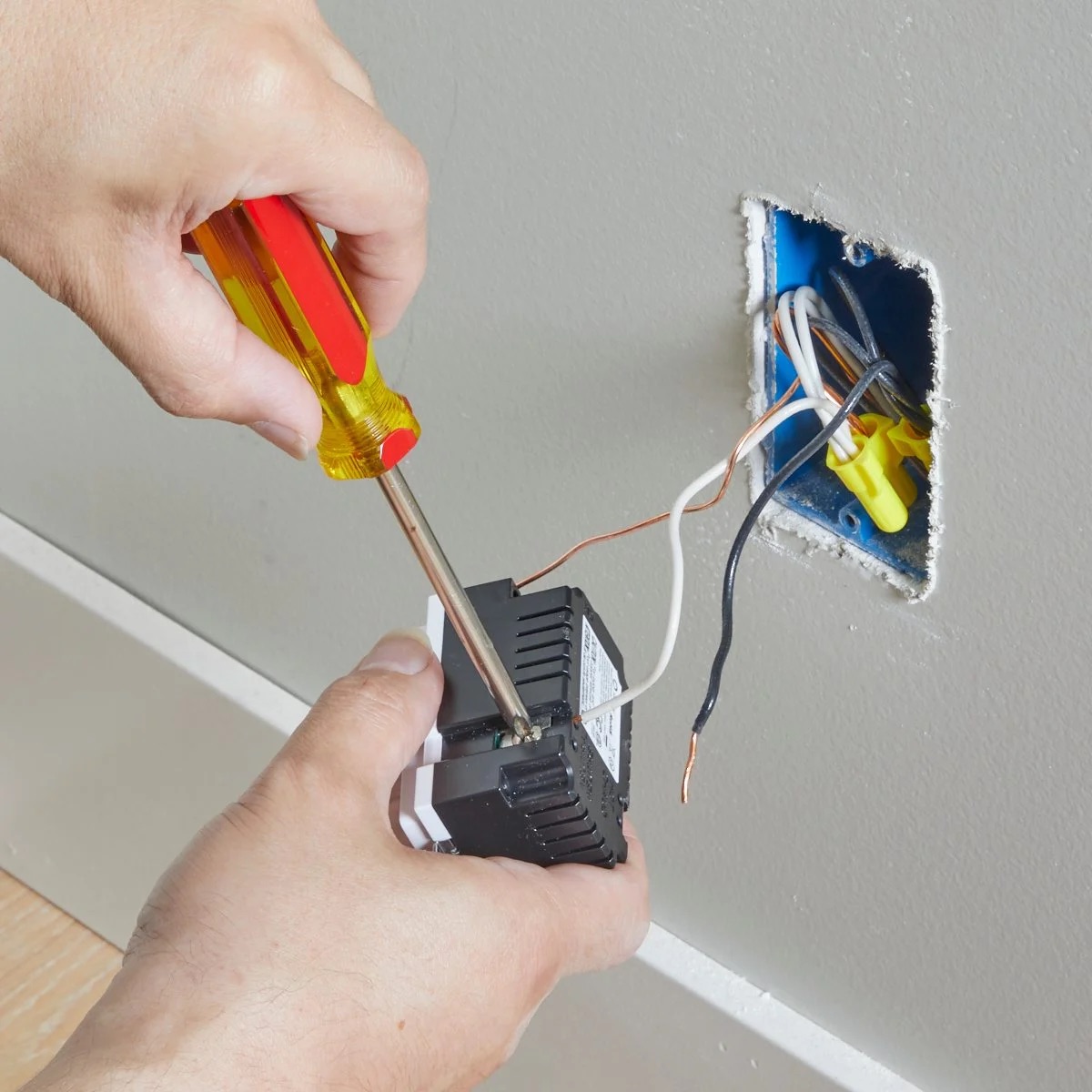Home>Articles>5 Questions New Homeowners Should Ask To Minimize Contractor Spending


Articles
5 Questions New Homeowners Should Ask To Minimize Contractor Spending
Modified: December 7, 2023
Discover the top five questions that every new homeowner should ask to keep contractor spending to a minimum. Get expert advice and tips in our informative articles.
(Many of the links in this article redirect to a specific reviewed product. Your purchase of these products through affiliate links helps to generate commission for Storables.com, at no extra cost. Learn more)
Introduction
Embarking on the journey of homeownership is an exciting and fulfilling experience. Whether you’re purchasing a brand new house or an older property in need of some love, one thing is certain – home improvement and renovation projects are on the horizon.
When it comes to hiring contractors for your home improvement endeavors, it’s crucial to approach the process with care and consideration. After all, you want to ensure that you’re making informed decisions that not only deliver exceptional results but also stay within your budget. One way to achieve this is by asking the right questions before hiring any contractor.
In this article, we will explore five questions that new homeowners should ask to minimize contractor spending. By understanding the answers to these questions, you’ll gain valuable insight into the expertise, reliability, and professionalism of the contractors you’re considering, helping you make informed hiring decisions and protecting your investment.
Key Takeaways:
- Verify contractors’ licensing and insurance to ensure professionalism and quality work. Clear payment schedules, references, and detailed estimates are crucial for informed hiring decisions and successful home improvement projects.
- Open communication about unexpected costs and changes is key. Requesting references and examples of past work empowers homeowners to choose contractors aligned with their vision and budget.
Question 1: Are the contractors licensed and insured?
One of the first and most important questions to ask before hiring any contractor is whether they are licensed and insured. Hiring unlicensed or uninsured contractors can lead to a variety of risks, including shoddy workmanship, liability issues, and potential lawsuits.
A licensed contractor demonstrates that they have met the necessary requirements set by the state or local authority. This typically includes passing exams, meeting educational requirements, and demonstrating a certain level of experience. By hiring a licensed contractor, you can be confident that they have the knowledge and skills to carry out the work professionally and up to code.
In addition to licensing, it’s crucial to ensure that the contractor carries adequate insurance coverage. This includes general liability insurance, which protects against property damage or injuries that may occur during the project. It’s also essential for the contractor to have worker’s compensation insurance to cover any accidents or injuries suffered by their employees while working on your property.
Request proof of both licensing and insurance before hiring any contractor. A reputable contractor will readily provide this information, giving you peace of mind knowing that you’re working with professionals who are committed to their craft and the well-being of their clients.
Question 2: What is the payment schedule?
Understanding the payment schedule is crucial for budgeting and financial planning when hiring a contractor. It’s essential to establish upfront how and when payments will be made throughout the project.
Typically, contractors require an initial deposit or down payment before beginning the work. This helps cover the cost of materials and ensures the client’s commitment to the project. However, the amount of the deposit should be reasonable and proportional to the overall project cost. Be cautious if a contractor asks for a disproportionately large deposit upfront.
Once the project is underway, the payment schedule should be clearly outlined in the contract. It may be structured as a series of milestone payments, where specific amounts are due upon reaching certain project milestones or completion of specific phases.
It’s important to strike a balance between making timely payments to contractors and ensuring that work is progressing according to the agreed-upon schedule. The payment schedule should align with the project timeline and milestones, providing accountability and motivation for the contractor to complete the work on time.
Additionally, avoid making the final payment until you’re completely satisfied with the completed project. This ensures that any remaining issues or concerns are addressed before settling the final payment. As a homeowner, it’s within your rights to hold onto a portion of the payment until all work is completed to your satisfaction.
Clearly defining the payment schedule in the contract protects both you and the contractor, ensuring transparency and a fair financial arrangement throughout the project.
Question 3: Can I see references and examples of your past work?
When considering hiring a contractor, it’s essential to assess their level of experience and the quality of their work. One of the most effective ways to do this is by asking for references and examples of their past work.
A reputable contractor will be more than happy to provide you with references from previous clients. These references allow you to get firsthand feedback on the contractor’s professionalism, reliability, and the overall satisfaction of their past clients. Reach out to these references and ask specific questions about the contractor’s communication, adherence to deadlines, and the quality of their workmanship.
Furthermore, ask the contractor to provide examples of their past work. They may have a portfolio or online gallery showcasing their previous projects. Examining these examples not only gives you an idea of their skill and expertise in your specific type of project but also allows you to visualize the quality and style of their work.
When reviewing past work, consider the attention to detail, craftsmanship, and overall aesthetic appeal. Look for consistency in their work, as well as a range of styles and approaches that demonstrate their versatility and ability to meet your specific needs and preferences.
In addition to references and examples, it can be valuable to ask the contractor about any industry certifications or professional memberships they may hold. These can serve as additional indications of their commitment to quality and their ongoing professional development.
By requesting references and examples, you can better evaluate the contractor’s track record and make an informed decision about their suitability for your project. Remember, it’s your home, and you deserve the best possible contractor to bring your vision to life.
When hiring a contractor, always ask for references and check them thoroughly. This will help you ensure that you are hiring a reliable and trustworthy professional for your home improvement projects.
Question 4: How do you handle unexpected costs or changes in the project?
Home improvement projects aren’t immune to unexpected circumstances or changes along the way. It’s essential to have a clear understanding of how the contractor handles unforeseen costs or changes in the project scope.
Start by discussing with the contractor how they approach unexpected costs. Inquire about their process for identifying and communicating the need for additional funds. A reputable contractor will be transparent about any potential cost overruns and will work with you to find the best solution to stay within your budget.
Changes in the project scope can also arise throughout the construction process. It’s important to establish how the contractor handles these changes, both in terms of cost implications and timeline adjustments. Determine if they have a formal process for documenting change orders and how they communicate these changes to you.
When it comes to unexpected costs and project changes, communication is key. A reliable contractor will keep you informed every step of the way, presenting any necessary changes in writing and providing detailed explanations for the reasons behind them.
It’s also important to understand how any changes or unforeseen costs will be reflected in the payment schedule. Will the additional costs be added as a separate line item, or will the overall project cost be adjusted? Clarify this with the contractor to avoid any confusion or disputes down the line.
By addressing this question upfront, you can establish a foundation of trust and ensure that both you and the contractor are on the same page when it comes to handling unexpected costs and changes in the project.
Read more: Questions To Ask When Building A House
Question 5: Can you provide a detailed written estimate?
Obtaining a detailed written estimate is vital when hiring a contractor for your home improvement project. This estimate serves as a formal agreement between you and the contractor, outlining the scope of work, materials, and associated costs.
When requesting a written estimate, be sure to ask for it to be itemized. This means that the estimate should break down the project into specific tasks, materials, and labor costs. An itemized estimate provides transparency and allows you to understand how the overall cost is calculated.
Ensure that the estimate includes details such as the start and completion dates, specific materials to be used, and any warranties or guarantees offered by the contractor or suppliers. The more detailed the estimate, the better you can compare it to other estimates and make an informed decision.
If there are any elements of the estimate that you don’t understand, don’t hesitate to ask the contractor for clarification. It’s important that you have a clear understanding of what is included in the estimate and what may be considered as an additional cost.
As you review the estimate, be cautious of any unusually low or high prices. Extremely low estimates may indicate the use of subpar materials or lack of experience, while excessively high estimates may suggest overcharging or unnecessary add-ons. It’s wise to obtain multiple estimates from different contractors to get a sense of the average cost for your project.
Requesting a written estimate protects both you and the contractor, ensuring that everyone is on the same page regarding the project’s scope and associated costs. It provides a solid foundation for a successful working relationship and minimizes the chances of misunderstandings or unexpected expenses cropping up during the project.
Conclusion
Hiring contractors for your home improvement projects can be a significant investment, both financially and emotionally. By asking the right questions before hiring any contractor, you can minimize your spending and ensure a successful outcome for your project.
First and foremost, verify that the contractors you’re considering are licensed and insured. This provides peace of mind that they have met the necessary requirements and are committed to professional standards and quality workmanship.
Understanding the payment schedule is crucial for effective financial planning. Clearly establish how and when payments will be made throughout the project, ensuring a fair and balanced arrangement for both parties.
Requesting references and examples of past work allows you to assess the contractor’s experience, reliability, and the quality of their work. This insight will help you make an informed decision and choose a contractor who aligns with your vision for your home.
Addressing how unexpected costs and changes are handled is critical. Ensure open communication and transparency with your contractor to avoid surprises and foster a proactive approach to managing unforeseen circumstances.
Finally, obtain a detailed written estimate that outlines the scope of work, materials, and associated costs. This serves as a formal agreement and helps you compare different contractor options, making an informed decision that aligns with your budget and project requirements.
By asking these five questions, you’ll empower yourself as a homeowner and minimize spending when hiring contractors for your home improvement projects. Remember, it’s your home, and you have the right to work with professionals who deliver exceptional results while respecting your budget and vision.
Frequently Asked Questions about 5 Questions New Homeowners Should Ask To Minimize Contractor Spending
Was this page helpful?
At Storables.com, we guarantee accurate and reliable information. Our content, validated by Expert Board Contributors, is crafted following stringent Editorial Policies. We're committed to providing you with well-researched, expert-backed insights for all your informational needs.















0 thoughts on “5 Questions New Homeowners Should Ask To Minimize Contractor Spending”